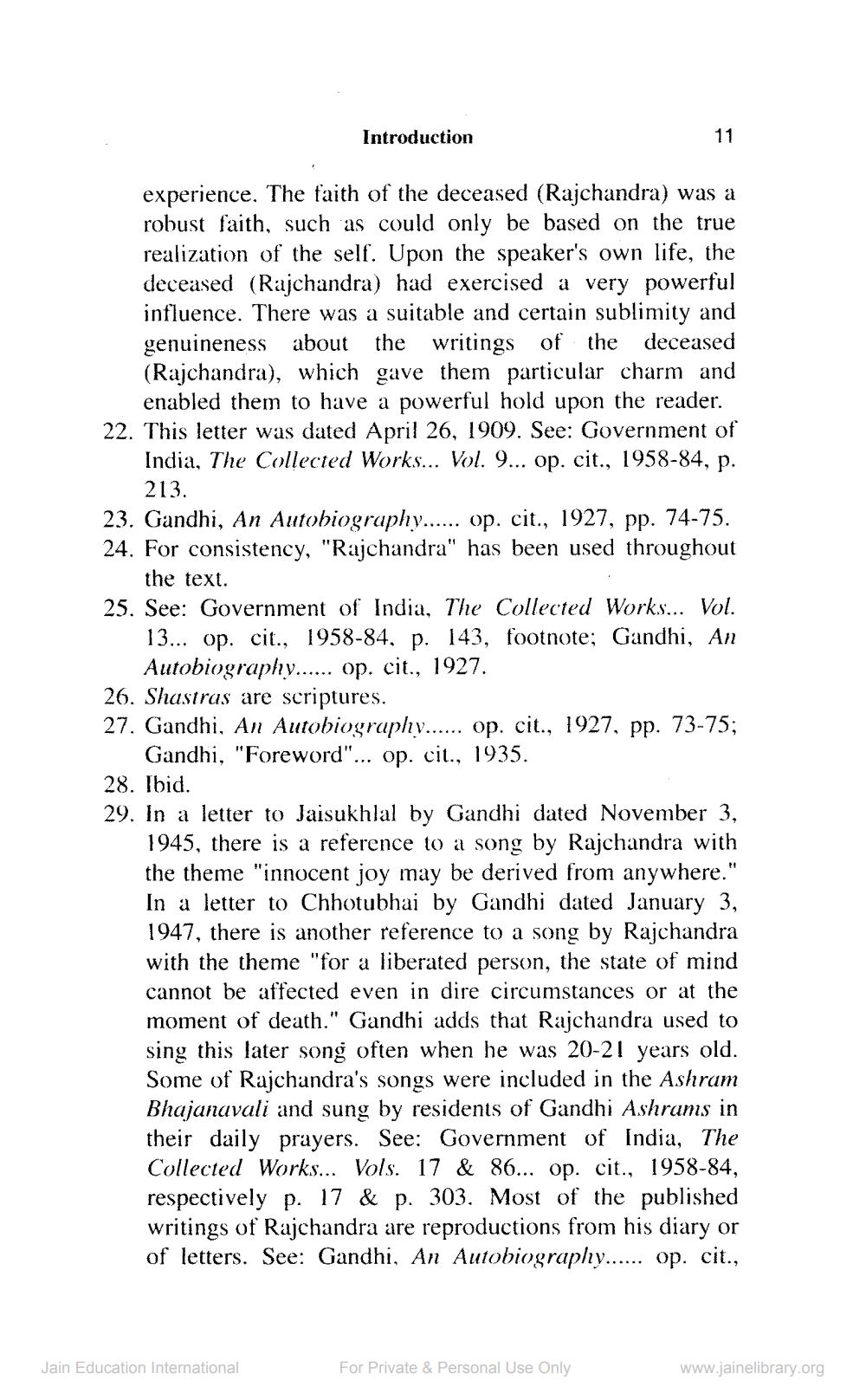________________
Introduction
experience. The faith of the deceased (Rajchandra) was a robust faith, such as could only be based on the true realization of the self. Upon the speaker's own life, the deceased (Rajchandra) had exercised a very powerful influence. There was a suitable and certain sublimity and genuineness about the writings of the deceased (Rajchandra), which gave them particular charm and
enabled them to have a powerful hold upon the reader. 22. This letter was dated April 26, 1909. See: Government of
India, The Collected Works... Vol. 9... op. cit., 1958-84, p.
213. 23. Gandhi, An Autobiography...... op. cit., 1927, pp. 74-75. 24. For consistency, "Rajchandra" has been used throughout
the text. 25. See: Government of India, The Collected Works... Vol.
13... op. cit., 1958-84, p. 143, footnote; Gandhi, An
Autobiography...... op. cit., 1927. 26. Shastras are scriptures. 27. Gandhi, An Autobiography...... op. cit., 1927, pp. 73-75;
Gandhi, "Foreword"... op. cit., 1935. 28. Ibid. 29. In a letter to Jaisukhlal by Gandhi dated November 3,
1945, there is a reference to a song by Rajchandra with the theme "innocent joy may be derived from anywhere." In a letter to Chhotubhai by Gandhi dated January 3, 1947, there is another reference to a song by Rajchandra with the theme "for a liberated person, the state of mind cannot be affected even in dire circumstances or at the moment of death." Gandhi adds that Rajchandra used to sing this later song often when he was 20-21 years old. Some of Rajchandra's songs were included in the Ashram Bhajanavali and sung by residents of Gandhi Ashrams in their daily prayers. See: Government of India, The Collected Works... Vols. 17 & 86... op. cit., 1958-84, respectively p. 17 & p. 303. Most of the published writings of Rajchandra are reproductions from his diary or of letters. See: Gandhi, An Autobiography...... op. cit.,
Jain Education International
For Private & Personal Use Only
www.jainelibrary.org




